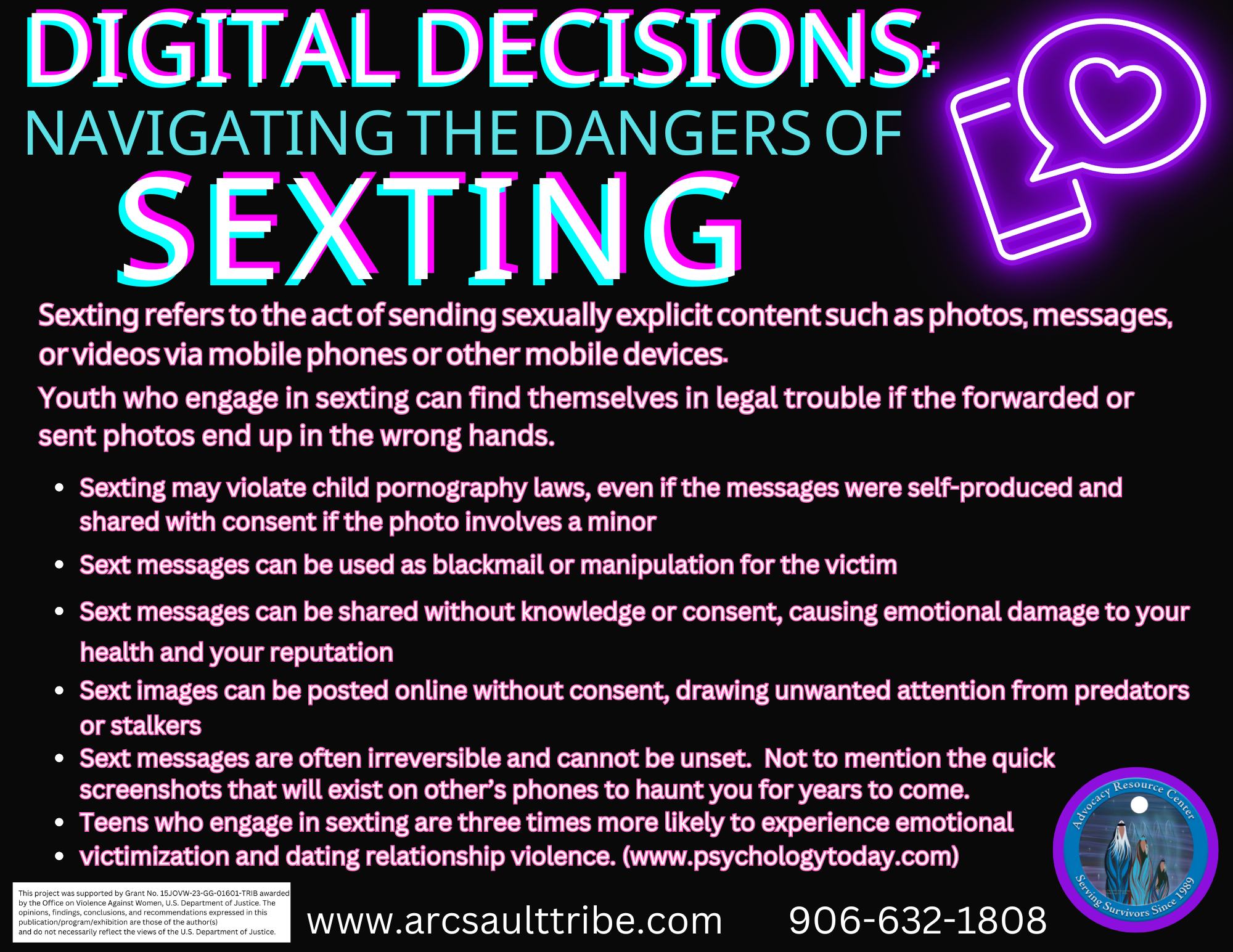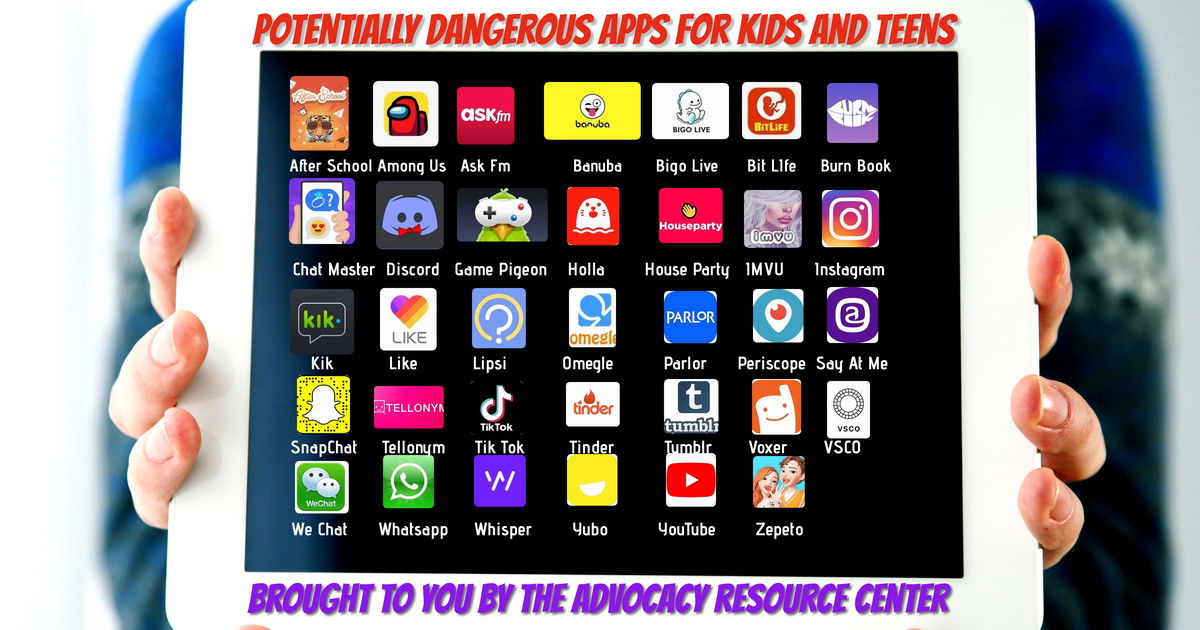July Focuses on Online Crime; Sexploitation, Sexting, and Revenge Porn
July Highlights the Dangers of Sexting, Sextortion, and Revenge Porn
Nowadays, children seem to be less likely to play outside during the summer and are more likely to be found with a phone or tablet in hand. If not glued to a phone, perhaps stuck to a video game for hours on end. Although children are intelligent and can navigate most electronic devices easily, they are still quite naive and vulnerable to the dangers lurking behind the screens. As parents, grandparents, guardians, babysitters, and daycare providers, we can all participate in helping our children stay safe while they are online.
Communication is key. It begins with regular communication with our children. Not just a one-time reminder in passing to “be careful” on the internet, but regular reminders of the potential danger that awaits them in cyberspace. We need in-depth conversations about why we need our children to be careful. Parents have numerous concerns about their children being connected online daily, whether it's social media platforms or online gaming.
Cyberbullying, internet predators, sexting, revenge porn, and sextortion are some of the main concerns.
Sexting refers to the act of sending sexually explicit content such as photos, messages, or videos via mobile phones or other mobile devices. Sexting with a minor may violate child pornography laws, even if the messages were self-produced and shared with consent if the photo involves a minor. Sext messages can be used as blackmail or manipulation for the victim and can be shared without knowledge or consent, causing emotional damage to one's health and reputation. Sext images can be posted online without consent or permission, drawing unwanted attention from predators or stalkers.

Revenge porn, also known as non-consensual pornography or image-based sexual abuse, involves the distribution of explicit images or videos of individuals without their consent, typically by a former or current partner to blackmail, humiliate, or harm the victim. Revenge porn can have severe emotional and psychological consequences for victims. Feelings of shame, anxiety, embarrassment, betrayal, depression, and thoughts of suicide often result.

Lastly, sextortion using social media refers to the act of threatening to share nude or explicit images or videos. Sextortion can happen to anyone, regardless of age, background, or gender orientation. Predators contact individuals through gaming platforms, apps, or social media accounts. They convince victims to produce explicit content (such as videos or images), usually with bribes or empty promises. Once the predator has this material, the predator blackmails or coerces the victims, demanding more explicit content, money, or other favors in exchange for keeping their sexual images private. (For more information, visit www.ice.gov) Victims of sextortion may also experience other forms of abuse within their relationships. Perpetrators of sextortion may engage in other harmful behaviors, including dating violence. Perpetrators abuse their power and control by using force, fraud, or coercion, one of the many tools of an abuser.

If you need support or advocacy for these issues, the Advocacy Resource Center can help. Here are some helpful guidelines to follow for practicing “online safety.”
- Setting and following family rules that indicate length of time and behavior on social media and online gaming sites.
- Explain the dangers of sharing personal photos. Remind children and teens that their pictures can fall into the wrong hands and that retrieving or deleting the photo is nearly impossible.
- Teach children and teens never to reveal personal information such as address or phone number or share their location online.
- Don’t chat with strangers and avoid “friending” anyone they do not know.
- Never respond to threatening emails, messages, posts, or texts. Use only a screen name, and do not share passwords with anyone (except parents, guardians, or caregivers)
- Children should never agree to meet up or get together in person with anyone they have met online without parental approval and/or supervision.
- Encourage your child to show you or come to you when they encounter any communication or conversation that is scary, threatening, or hurtful. By having conversations about this subject often, children and teens may feel more comfortable coming to you when they have an issue.
- It is also important to teach our children to be kind when online with others. The same rules apply online as they do in person. Treat others how you would like to be treated.
- Children should ask permission before downloading an app or using a new device.
- Using devices close to bedtime should be avoided so the child’s brain can rest and get a healthy amount of sleep.
S.M.A.R.T. is a helpful acronym for keeping children/teens safe online.
S- Safe: Keep safe by being careful not to give out personal information
M-Meet: Meeting someone you have only met online can be dangerous. Only do so with parents’ permission.
A-Accepting: Accepting emails, instant messages, or opening files, pictures, or text from people you don’t know or trust can lead to problems; they may contain viruses or nasty messages.
R-Reliable: Information you find online may not be accurate, or someone online may be lying about who they are. Make sure you check the information before you believe it.
T-Tell: Tell your parent, guardian, caregiver, or a trusted adult if someone or something makes you feel uncomfortable or worried or if you or someone you know is being bullied online.

Fortunately, parents can use several apps to help monitor children/teens' device usage. Most cost just a few dollars per month; some are free but with limited access. Look for such apps in your device’s app store to help monitor your child’s emails, texts, social media sites, and what content is being searched or shared. The apps also help limit screen time and filter websites to eliminate risky content. Apps like Bark, Pocket Guardian, WebWatcher, and Family Time are some highly rated apps parents use. Limitly is a free app for Android users only. However, we cannot solely rely on these apps to do the work for us.
We must stay involved, communicate, monitor the devices, and stay connected with our children. Children need real “face time” and honest in-person communication. Be mindful of your screen time and make time for your family away from the internet.
Make special memories together and enjoy each other’s company.
Be sure to follow our Facebook page at www.facebook.com/saulttribeARC for a list of potentially dangerous apps for children and teens. The Advocacy Resource Center can provide advocacy for those in need of support services and can be reached at 906-632-1808.